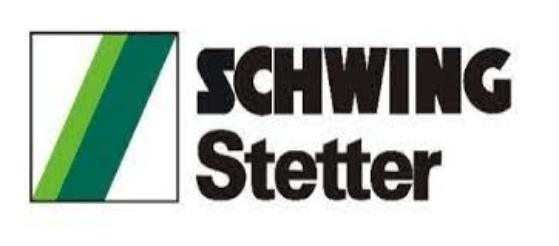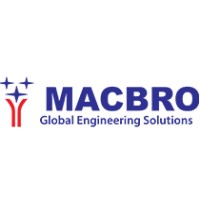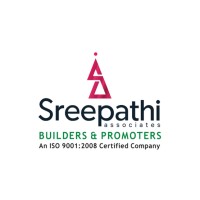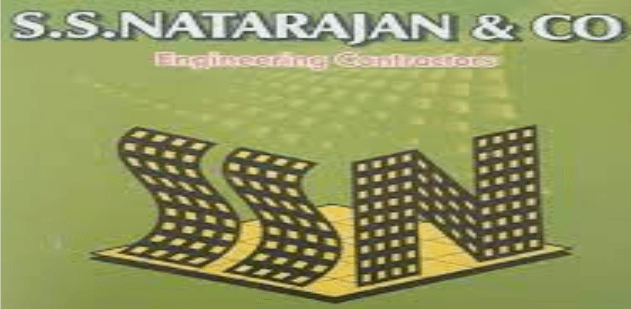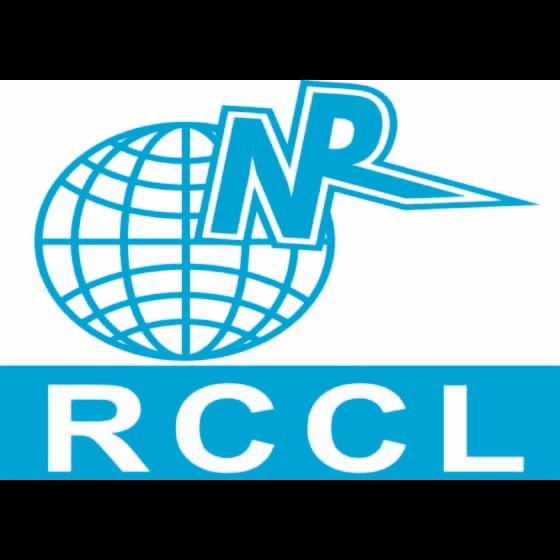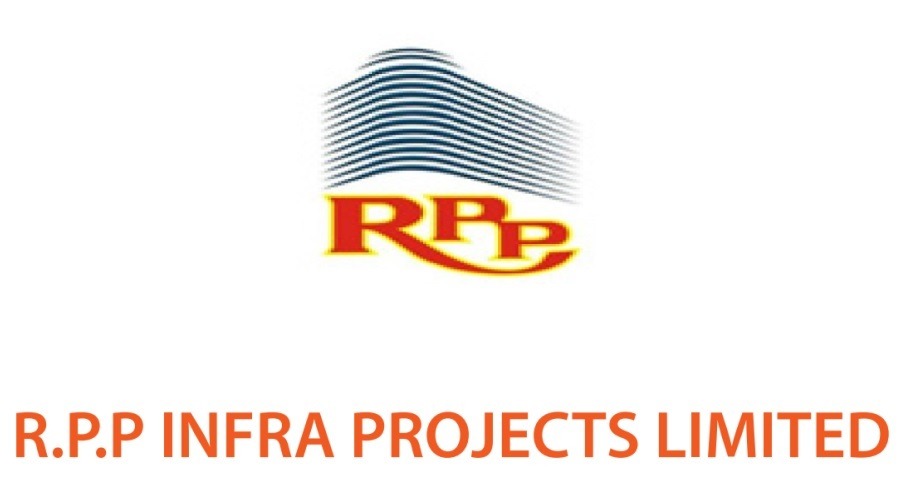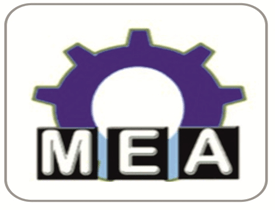
The Department of Mechanical Engineering was started in the year 2009 with an intake of 60 students in the UG programme. The department aims to develop mechanical engineers who are innovative, entrepreneurial and equipped to become global leaders in research and technology. The objective of the department is to graduate individuals who can design systems, components or processes to meet desired needs within the realistic constraints such as economic, environmental, social, health, safety and manufacturability.
Vision
Mission
M2: Improve employability through Industrial Interaction and Entrepreneurship.
M3: Develop the Professional Ethics and Human Values for the benefit of society.
PO 1: Engineering knowledge – Apply the knowledge of mathematics, science, engineering fundamentals, and an engineering specialization to the solution of complex engineering problems.
PO 2: Problem analysis – Identify, formulate, review research literature, and analyze complex engineering problems reaching substantiated conclusions using first principles of mathematics, natural sciences, and engineering sciences.
PO 3: Design/development of solutions – Design solutions for complex engineering problems and design system components or processes that meet the specified needs with appropriate consideration for the public health and safety, and the cultural, societal, and environmental considerations.
PO 4: Conduct investigations of complex problems – Use research-based knowledge and research methods including design of experiments, analysis and interpretation of data, and synthesis of the information to provide valid conclusions.
PO 5: Modern tool usage – Create, select, and apply appropriate techniques, resources, and modern engineering and IT tools including prediction and modeling to complex engineering activities with an understanding of the limitations.
PO 6: The engineer and society – Apply reasoning informed by the contextual knowledge to assess societal, health, safety, legal and cultural issues and the consequent responsibilities relevant to the professional engineering practice.
PO 7: Environment and sustainability – Understand the impact of the professional engineering solutions in societal and environmental contexts, and demonstrate the knowledge of, and need for sustainable development.
PO 8: Ethics – Apply ethical principles and commit to professional ethics and responsibilities and norms of the engineering practice.
PO 9: Individual and team work – Function effectively as an individual, and as a member or leader in diverse teams, and in multidisciplinary settings.
PO 10: Communication – Communicate effectively on complex engineering activities with the engineering community and with society at large, such as, being able to comprehend and write effective reports and design documentation, make effective presentations, and give and receive clear instructions.
PO 11: Project management and finance – Demonstrate knowledge and understanding of the engineering and management principles and apply these to one’s own work, as a member and leader in a team, to manage projects and in multidisciplinary environments.
PO 12: Life-long learning – Recognize the need for, and have the preparation and ability to engage in independent and life-long learning in the broadest context of technological change.
PSO 1: Apply the knowledge gained in Mechanical Engineering for design, development and manufacture of multi-disciplinary engineering systems and projects.
PSO 2: Use the knowledge acquired to investigate research problems in Mechanical Engineering with due consideration for environmental and social impacts.
PEO1: Successful Professional Careers in Mechanical Engineering and Related Fields are Awaiting.
PEO2: Graduates who pursue further education will participate in technological advancements.
PEO3: Graduates will work in their fields with respectable leadership abilities and moral principles.
-
- 4-year duration
- Anna University Curriculum
- Industry Internship with Stipend
- Placement status
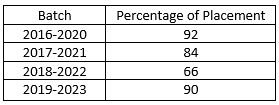
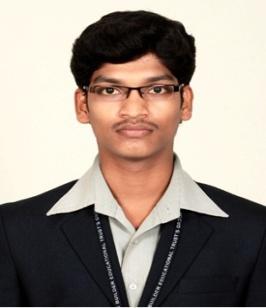
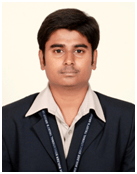
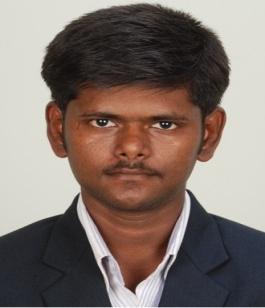
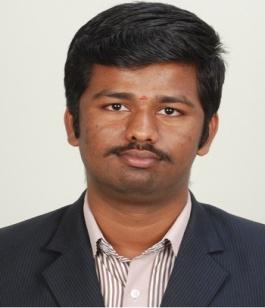
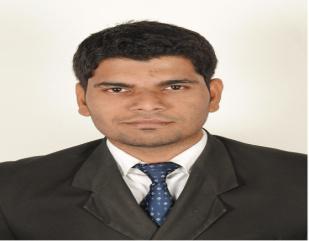
- Exemplary Placement Record
- Average Teaching Experience : 15 years
- Hands on Workshop on Trending Technology
- Academic Incentives for Top Performers
- Empowered Faculty Members and Grabbed National and International Awards
- Strong Industry Tie-Ups
- Smart Class Rooms & Learning Management Systems
- Students are given Opportunity to Organize Major Events of the Department.
- National level Champions in Sports and Games.
II Year – Auto CAD
- To make the students understand and interpret drawings of machine components.
- To prepare assembly drawings both manually familiarize the students with Indian Standards on drawing practices and standard components.
III Year – Creo & CATIA
- To gain practical experience in handling 2D drafting and 3D modelling software systems.
- Students can re-create part drawings, sectional views and assembly drawings as per standards.
- Students will be educated to follow the drawing standards, Fits and Tolerances.
IV Year – ANSYS
- To give exposure to software tools needed to analyze engineering problems.
- To expose the students to different applications of simulation and analysis tools.
- Analyze the stresses and strains induced in plates, brackets and beams and heat transfer problems.
- Students can calculate the natural frequency and mode shape analysis of 2D components and beams.
- SAE – Society of Automotive Engineers
- ISTE – Indian Society for Technical Education
- ISME – Indian Society of Mechanical Engineers
- SESI – Solar Energy Society of India
- IE(I) – Institution of Engineers (India)
- IAENG – International Association of Engineers
- Faculty development programmes on various topics of contemporary interest are organized to update knowledge and skills.
- Students undergo in-plant training, industrial visits and participate in seminars, workshops etc.
- Soft skills training, out bound training and mock interviews are being conducted regularly by inviting company professionals on campus to make students industry ready.
- 3D Printing
- Composite Material
- Alternate Fuels
- Renewable Energy
- Energy and Efficiency
- Electric Vehicle
- Battery Technology
| S.No. | University Serial No. | Name of the Student |
|---|---|---|
| I – Year | ||
| 1 | 730322114001 | ABIJAS.N |
| 2 | 730322114002 | ABINAYAKUMAR K |
| 3 | 730322114003 | AJITH KUMAR.S |
| 4 | 730322114004 | AKASH R.S |
| 5 | 730322114005 | ANISH FATHIMA.S |
| 6 | 730322114006 | AZHAGU SOLAI.L |
| 7 | 730322114007 | DHANASEELAN.S |
| 8 | 730322114008 | DHARSHAN.R |
| 9 | 730322114009 | DINESH KUMAR S |
| 10 | 730322114010 | DIVYASAKTHI.S |
| 11 | 730322114011 | GIRIRAM.S |
| 12 | 730322114012 | GODWIN ARULRAJ.L |
| 13 | 730322114013 | GOWRISAN.T |
| 14 | 730322114014 | GOWTHAMKANNA.B |
| 15 | 730322114015 | KABILESH.S |
| 16 | 730322114016 | KAMALESH KUMAR.K |
| 17 | 730322114017 | KANISKAR B |
| 18 | 730322114018 | KARAN.M |
| 19 | 730322114019 | KRISHNAN.V |
| 20 | 730322114020 | LALITHRAJ.M |
| 21 | 730322114021 | MADHAN.K |
| 22 | 730322114022 | MADHAN.P |
| 23 | 730322114023 | MANIBALA R |
| 24 | 730322114024 | MANO.P |
| 25 | 730322114025 | MASOOTH THOUFIK.S |
| 26 | 730322114026 | MOORTHI.M |
| 27 | 730322114027 | MUNIMADESH S |
| 28 | 730322114028 | PARTHASARATHY.S |
| 29 | 730322114029 | PONSANKAR .P |
| 30 | 730322114030 | PRADEEP KUMAR.R |
| 31 | 730322114031 | RAJESH.P |
| 32 | 730322114032 | SARAVANAN.T |
| 33 | 730322114033 | SHAM.S |
| 34 | 730322114034 | SHANMUGASUNDARAM M |
| 35 | 730322114035 | SHEMASHBI.S |
| 36 | 730322114036 | SRINATH.M |
| 37 | 730322114037 | SRIRAM.R |
| 38 | 730322114038 | SURYA.S |
| 39 | 730322114039 | THEERAJ.S |
| 40 | 730322114040 | VELLINGIRI.L |
| 41 | 730322114041 | VIJAY.A |
| II – Year | ||
| 1 | 730321114001 | ABISHEK R |
| 2 | 730321114002 | ADHITHYA L K |
| 3 | 730321114003 | AKASH M |
| 4 | 730321114004 | BALAJI KARTHICK S |
| 5 | 730321114005 | BALAMURUGAN M |
| 6 | 730321114007 | BHARANIDHARAN A |
| 7 | 730321114009 | CHARANSUNDAR S |
| 8 | 730321114010 | DANSURYA D |
| 9 | 730321114011 | DELUXSON I |
| 10 | 730321114012 | DHANUSHKUMAR S |
| 11 | 730321114013 | DINESH M |
| 12 | 730321114014 | EDWIN AKASH S |
| 13 | 730321114015 | EZHILAN S |
| 14 | 730321114016 | GOKUL PRASANNA R |
| 15 | 730321114017 | GOPAL D |
| 16 | 730321114018 | GOWTHAM S |
| 17 | 730321114019 | GURUPRASATH K |
| 18 | 730321114020 | HARI KRISHNAN S |
| 19 | 730321114021 | HARISH A |
| 20 | 730321114022 | JAGAN NATHAN N |
| 21 | 730321114023 | JENITH S |
| 22 | 730321114024 | KALAISELVAN R |
| 23 | 730321114025 | KRISHNAN R |
| 24 | 730321114026 | LOGITHA DEVI V S |
| 25 | 730321114027 | MADHAN KUMAR S |
| 26 | 730321114028 | MANIKANDAN R |
| 27 | 730321114029 | MATHESHWARAN P |
| 28 | 730321114030 | MUTHUMANI A |
| 29 | 730321114031 | NANDHINI M |
| 30 | 730321114032 | NITHARSAN MUTHU K K |
| 31 | 730321114033 | NIVAS S |
| 32 | 730321114034 | NIVASH T |
| 33 | 730321114036 | PRASANNA KUMAR M |
| 34 | 730321114037 | PRAVEEN G |
| 35 | 730321114040 | PRITHIKA V |
| 36 | 730321114041 | PRIYADHARSHINI G |
| 37 | 730321114042 | RAHAVAN R |
| 38 | 730321114043 | RANJITHKUMAR S |
| 39 | 730321114044 | RUTHRA MOORTHI A |
| 40 | 730321114045 | SABARINATHAN S |
| 41 | 730321114047 | SANJAI S |
| 42 | 730321114048 | SANJEEV A |
| 43 | 730321114049 | SANMITHA S |
| 44 | 730321114050 | SANTHOSH KUMAR T |
| 45 | 730321114052 | SIVASAKTHI T |
| 46 | 730321114053 | SUGANTHIRAN M |
| 47 | 730321114054 | TAMILARASAN N |
| 48 | 730321114057 | VASHEKA SHREE J |
| 49 | 730321114058 | VASUNTHRA P |
| 50 | 730321114060 | VIGNESH P |
| 51 | 730321114061 | VISHAL MANJUREKKAR R |
| 52 | 730321114062 | VISHNU R |
| 53 | 730321114063 | YOGESHWARAN T |
| 54 | 730321114301 | A.GIRIPRASANTH |
| 55 | 730321114302 | K.SANJAY |
| 56 | 730321114303 | M.SRIDHAR |
| 57 | 730321114304 | R.VIGNESH |
| III – Year | ||
| 1 | 730320114001 | AMESH R |
| 2 | 730320114002 | DHARANESH T |
| 3 | 730320114003 | MURUGESAN S |
| 4 | 730320114004 | SELVARAM S |
| 5 | 730320114005 | SRIMATHIVANAN P V |
| 6 | 730320114301 | ABHISHAK S |
| 7 | 730320114302 | ABISHEK M |
| 8 | 730320114303 | AJIS SAFRIN T |
| 9 | 730320114304 | ANNAMALAI J |
| 10 | 730320114305 | BALASUBRAMANI M |
| 11 | 730320114306 | GOKUL R |
| 12 | 730320114310 | KANNAN A |
| 13 | 730320114312 | KATHIR R |
| 14 | 730320114313 | KRISHNAMOORTHY M |
| 15 | 730320114314 | MAHENDRAN S |
| 16 | 730320114317 | MOHAMED SHAHEEN S |
| 17 | 730320114319 | NAGASURYA P |
| 18 | 730320114320 | NAVEEN BABU R P |
| 19 | 730320114321 | NAVIN R G |
| 20 | 730320114322 | RANGANATHAN M |
| 21 | 730320114325 | SARAN S |
| 22 | 730320114327 | SHIVA SHANKAR K |
| 23 | 730320114328 | SOUNDHARPAANDI V |
| 24 | 730320114329 | SRINIVASAN S |
| 25 | 730320114330 | SUBBAIYA T |
| 26 | 730320114331 | VASANTH P |
| 27 | 730320114332 | VIGNESHWARAN A |
| IV – Year | ||
| 1 | 730319114001 | AMRISH S |
| 2 | 730319114002 | BATHRINATH A V |
| 3 | 730319114003 | DEEPAK R |
| 4 | 730319114004 | GOKULPRASATH R |
| 5 | 730319114006 | HARISHANKER M S |
| 6 | 730319114007 | KALAIYARASU L |
| 7 | 730319114008 | KRISHNA BHARATH R |
| 8 | 730319114009 | MADHUMITHA V |
| 9 | 730319114011 | MONISHA A |
| 10 | 730319114012 | NAVANEETHA KRISHNAN S |
| 11 | 730319114013 | NIJANTHAN K |
| 12 | 730319114014 | PARHIBAN V |
| 13 | 730319114015 | PRIYATHARSAN S |
| 14 | 730319114016 | RAVIKUMAR V |
| 15 | 730319114017 | SANJEEV N |
| 16 | 730319114019 | SHIVANESH S S |
| 17 | 730319114020 | SRITHAR E |
| 18 | 730319114021 | SUGANYA E |
| 19 | 730319114022 | SUJITHKANNA S |
| 20 | 730319114024 | THARVESH MYTHEEN S |
| 21 | 730319114025 | VASANTHAKUMAR M |
| S.No. | University Serial No. | Name of the Student |
|---|---|---|
| I – Year | ||
| 1 | 730321114001 | ABISHEK R |
| 2 | 730321114002 | ADHITHYA L K |
| 3 | 730321114003 | AKASH M |
| 4 | 730321114004 | BALAJI KARTHICK S |
| 5 | 730321114005 | BALAMURUGAN M |
| 6 | 730321114006 | BHAKARAPETA CHANDU PRASAD REDDY |
| 7 | 730321114007 | BHARANIDHARAN A |
| 8 | 730321114008 | BOSE P |
| 9 | 730321114009 | CHARANSUNDAR S |
| 10 | 730321114010 | DANSURYA D |
| 11 | 730321114011 | DELUXSON I |
| 12 | 730321114012 | DHANUSHKUMAR S |
| 13 | 730321114013 | DINESH M |
| 14 | 730321114014 | EDWIN AKASH S |
| 15 | 730321114015 | EZHILAN S |
| 16 | 730321114016 | GOKUL PRASANNA R |
| 17 | 730321114017 | GOPAL D |
| 18 | 730321114018 | GOWTHAM S |
| 19 | 730321114019 | GURUPRASATH K |
| 20 | 730321114020 | HARI KRISHNAN S |
| 21 | 730321114021 | HARISH A |
| 22 | 730321114022 | JAGAN NATHAN N |
| 23 | 730321114023 | JENITH S |
| 24 | 730321114024 | KALAISELVAN R |
| 25 | 730321114025 | KRISHNAN R |
| 26 | 730321114026 | LOGITHA DEVI V S |
| 27 | 730321114027 | MADHAN KUMAR S |
| 28 | 730321114028 | MANIKANDAN R |
| 29 | 730321114029 | MATHESHWARAN P |
| 30 | 730321114030 | MUTHUMANI A |
| 31 | 730321114031 | NANDHINI M |
| 32 | 730321114032 | NITHARSAN MUTHU K K |
| 33 | 730321114033 | NIVAS S |
| 34 | 730321114034 | NIVASH T |
| 35 | 730321114036 | PRASANNA KUMAR M |
| 36 | 730321114037 | PRAVEEN G |
| 37 | 730321114038 | PRAVEEN S |
| 38 | 730321114039 | PREMKUMAR S |
| 39 | 730321114040 | PRITHIKA V |
| 40 | 730321114041 | PRIYADHARSHINI G |
| 41 | 730321114042 | RAHAVAN R |
| 42 | 730321114043 | RANJITHKUMAR S |
| 43 | 730321114044 | RUTHRA MOORTHI A |
| 44 | 730321114045 | SABARINATHAN S |
| 45 | 730321114046 | SANJAI P |
| 46 | 730321114047 | SANJAI S |
| 47 | 730321114048 | SANJEEV A |
| 48 | 730321114049 | SANMITHA S |
| 49 | 730321114050 | SANTHOSH KUMAR T |
| 50 | 730321114051 | SASIKUMAR S |
| 51 | 730321114052 | SIVASAKTHI T |
| 52 | 730321114053 | SUGANTHIRAN M |
| 53 | 730321114054 | TAMILARASAN N |
| 54 | 730321114057 | VASHEKA SHREE J |
| 55 | 730321114058 | VASUNTHRA P |
| 56 | 730321114059 | VETRIALAGAN S |
| 57 | 730321114060 | VIGNESH P |
| 58 | 730321114061 | VISHAL MANJUREKKAR R |
| 59 | 730321114062 | VISHNU R |
| 60 | 730321114063 | YOGESHWARAN T |
| II – Year | ||
| 1 | 730320114001 | AMESH R |
| 2 | 730320114002 | DHARANESH T |
| 3 | 730320114003 | MURUGESAN S |
| 4 | 730320114004 | SELVARAM S |
| 5 | 730320114005 | SRIMATHIVANAN P V |
| 6 | 730320114301 | ABHISHAK S |
| 7 | 730320114302 | ABISHEK M |
| 8 | 730320114303 | AJIS SAFRIN T |
| 9 | 730320114304 | ANNAMALAI J |
| 10 | 730320114305 | BALASUBRAMANI M |
| 11 | 730320114306 | GOKUL R |
| 12 | 730320114307 | GOKULAKRISHNAN G |
| 13 | 730320114308 | HARIPRASATH R |
| 14 | 730320114309 | JOTHI RAMALINGAM |
| 15 | 730320114310 | KANNAN A |
| 16 | 730320114311 | KANNIYAPPAN B |
| 17 | 730320114312 | KATHIR R |
| 18 | 730320114313 | KRISHNAMOORTHY M |
| 19 | 730320114314 | MAHENDRAN S |
| 20 | 730320114315 | MOHAMED FAISAL A |
| 21 | 730320114316 | MOHAMED SHAMEER U |
| 22 | 730320114317 | MOHAMED SHAHEEN S |
| 23 | 730320114319 | NAGASURYA P |
| 24 | 730320114320 | NAVEEN BABU R P |
| 25 | 730320114321 | NAVIN R G |
| 26 | 730320114322 | RANGANATHAN M |
| 27 | 730320114324 | SANJAY VICKRAM M J |
| 28 | 730320114325 | SARAN S |
| 29 | 730320114326 | SATHEESH KUMAR B |
| 30 | 730320114327 | SHIVA SHANKAR K |
| 31 | 730320114328 | SOUNDHARPAANDI V |
| 32 | 730320114329 | SRINIVASAN S |
| 33 | 730320114330 | SUBBAIYA T |
| 34 | 730320114331 | VASANTH P |
| 35 | 730320114332 | VIGNESHWARAN A |
| III – Year | ||
| 1 | 730319114001 | AMRISH S |
| 2 | 730319114002 | BATHRINATH A V |
| 3 | 730319114003 | DEEPAK R |
| 4 | 730319114004 | GOKULPRASATH R |
| 5 | 730319114006 | HARISHANKER M S |
| 6 | 730319114007 | KALAIYARASU L |
| 7 | 730319114008 | KRISHNA BHARATH R |
| 8 | 730319114009 | MADHUMITHA V |
| 9 | 730319114011 | MONISHA A |
| 10 | 730319114012 | NAVANEETHA KRISHNAN S |
| 11 | 730319114013 | NIJANTHAN K |
| 12 | 730319114014 | PARHIBAN V |
| 13 | 730319114015 | PRIYATHARSAN S |
| 14 | 730319114016 | RAVIKUMAR V |
| 15 | 730319114017 | SANJEEV N |
| 16 | 730319114019 | SHIVANESH S S |
| 17 | 730319114020 | SRITHAR E |
| 18 | 730319114021 | SUGANYA E |
| 19 | 730319114022 | SUJITHKANNA S |
| 20 | 730319114024 | THARVESH MYTHEEN S |
| 21 | 730319114025 | VASANTHAKUMAR M |
| IV – Year | ||
| 1 | 730318114001 | ABIKANNAN L |
| 2 | 730318114002 | BASKAR E |
| 3 | 730318114003 | BHUVANESWARAN M |
| 4 | 730318114004 | DINESHKUMAR M |
| 5 | 730318114005 | JAYA KUMAR T |
| 6 | 730318114006 | KUMARAN G |
| 7 | 730318114008 | MEIYARASU E |
| 8 | 730318114009 | NARESH R |
| 9 | 730318114011 | NITHEESH E |
| 10 | 730318114012 | PRAKASH M |
| 11 | 730318114013 | PRASANTH KANNAN K |
| 12 | 730318114014 | SAKTHI SIVACHALAPATHY P |
| 13 | 730318114015 | SAKTHI VADIVEL P |
| 14 | 730318114016 | SHANMUGAM T |
| 15 | 730318114017 | SIVA SANKAR B |
| 16 | 730318114018 | SIVASANKARAN M |
| 17 | 730318114303 | MOHAMED SYED ARAFATH M.E.H |
| 18 | 730318114304 | VISHNUPREETHI B |
| S.No. | University Serial No. | Name of the Student |
|---|---|---|
| I – Year | ||
| 1 | 730320114001 | AMESH R |
| 2 | 730320114002 | DHARANESH T |
| 3 | 730320114003 | MURUGESAN S |
| 4 | 730320114004 | SELVARAM S |
| 5 | 730320114005 | SRIMATHIVANAN P V |
| II – Year | ||
| 1 | 730319114001 | AMRISH S |
| 2 | 730319114002 | BATHRINATH A V |
| 3 | 730319114003 | DEEPAK R |
| 4 | 730319114004 | GOKULPRASATH R |
| 5 | 730319114006 | HARISHANKER M S |
| 6 | 730319114007 | KALAIYARASU L |
| 7 | 730319114008 | KRISHNA BHARATH R |
| 8 | 730319114009 | MADHUMITHA V |
| 9 | 730319114011 | MONISHA A |
| 10 | 730319114012 | NAVANEETHA KRISHNAN S |
| 11 | 730319114013 | NIJANTHAN K |
| 12 | 730319114014 | PARHIBAN V |
| 13 | 730319114015 | PRIYATHARSAN S |
| 14 | 730319114016 | RAVIKUMAR V |
| 15 | 730319114017 | SANJEEV N |
| 16 | 730319114019 | SHIVANESH S S |
| 17 | 730319114020 | SRITHAR E |
| 18 | 730319114021 | SUGANYA E |
| 19 | 730319114022 | SUJITHKANNA S |
| 20 | 730319114024 | THARVESH MYTHEEN S |
| 21 | 730319114025 | VASANTHAKUMAR M |
| III – Year | ||
| 1 | 730318114001 | ABIKANNAN L |
| 2 | 730318114002 | BASKAR E |
| 3 | 730318114003 | BHUVANESWARAN M |
| 4 | 730318114004 | DINESHKUMAR M |
| 5 | 730318114005 | JAYA KUMAR T |
| 6 | 730318114006 | KUMARAN G |
| 7 | 730318114008 | MEIYARASU E |
| 8 | 730318114009 | NARESH R |
| 9 | 730318114011 | NITHEESH E |
| 10 | 730318114012 | PRAKASH M |
| 11 | 730318114013 | PRASANTH KANNAN K |
| 12 | 730318114014 | SAKTHI SIVACHALAPATHY P |
| 13 | 730318114015 | SAKTHI VADIVEL P |
| 14 | 730318114016 | SHANMUGAM T |
| 15 | 730318114017 | SIVA SANKAR B |
| 16 | 730318114018 | SIVASANKARAN M |
| 17 | 730318114303 | MOHAMED SYED ARAFATH M.E.H |
| 18 | 730318114304 | VISHNUPREETHI B |
| IV – Year | ||
| 1 | 730317114001 | AJAY . B |
| 2 | 730317114003 | AKASH . G |
| 3 | 730317114004 | ARUN . K |
| 4 | 730317114005 | ARUNKUMAR . R |
| 5 | 730317114006 | BALAKUMAR . V |
| 6 | 730317114007 | BARATHKUMAR . S |
| 7 | 730317114008 | BOOVAN . S |
| 8 | 730317114009 | DEEPAK . C |
| 9 | 730317114011 | DEEPANRAJ . S |
| 10 | 730317114012 | ELAMPARUTHI . N |
| 11 | 730317114013 | GOKUL . M |
| 12 | 730317114014 | GOKUL . P |
| 13 | 730317114015 | GOKUL . S |
| 14 | 730317114016 | GOKULNATH . M |
| 15 | 730317114018 | GOWTHAM . S |
| 16 | 730317114019 | HARIHARAN . P |
| 17 | 730317114020 | JEEVANANTHAM . M |
| 18 | 730317114021 | KABILESH . S |
| 19 | 730317114022 | KANNAN . K |
| 20 | 730317114023 | KARTHIKEYAN . M |
| 21 | 730317114024 | KAVINKUMAR . P |
| 22 | 730317114026 | KIRUBAKARAN . S |
| 23 | 730317114028 | MAHANIDHISAKTHIVEL. B |
| 24 | 730317114029 | MANOJ . R |
| 25 | 730317114030 | MEIMATHAN . C |
| 26 | 730317114031 | MOHAN RAJ . S |
| 27 | 730317114033 | NIHILL ARAVIND . S |
| 28 | 730317114034 | PERIYASEDHU . K |
| 29 | 730317114035 | PRABAKARAN . A |
| 30 | 730317114036 | PRABAKARAN . M |
| 31 | 730317114037 | PRAVEENKUMAR . M |
| 32 | 730317114038 | RAMESHPANDIAN . M |
| 33 | 730317114039 | RANJITH KUMAR . G |
| 34 | 730317114040 | ROKESH . S |
| 35 | 730317114041 | SANJAY . M |
| 36 | 730317114042 | SELVAKUMAR . S |
| 37 | 730317114043 | SELVAM . P |
| 38 | 730317114044 | SHYAM . M |
| 39 | 730317114045 | SIDDHARTH . L |
| 40 | 730317114046 | SIVAKUMAR . S |
| 41 | 730317114047 | SIVAMAHESHWARAN . K |
| 42 | 730317114049 | SRINATH . S |
| 43 | 730317114050 | SWEATHA . M |
| 44 | 730317114051 | THANUJ KARTHIK . C |
| 45 | 730317114052 | THARUNPRASATH . K |
| 46 | 730317114053 | VAISHNAVI . S |
| 47 | 730317114054 | VARUN KUMAR . R |
| 48 | 730317114055 | VIGNESH . P |
| 49 | 730317114056 | VIGNESH . V |
| 50 | 730317114058 | VIJAY . M |
| 51 | 730317114059 | VIVEK . S |
| 52 | 730317114302 | GOWERI SANKAR. G |
| 53 | 730317114303 | MANOJKUMAR. M |
| 54 | 730317114304 | MURALIDHARAN.S |
| 55 | 730317114305 | NAVEEN. C |
| 56 | 730317114306 | NIRMALKUMAR. J |
| 57 | 730317114307 | SANKAR. M |
| S.NO. | NAME | DESIGNATION | DOJ | QUALIFICATION | NATURE OF ASSOCIATION |
| 1 | Dr.P.SOMASUNDARAM | Professor & Head | 24-07-2023 | M.E., Ph.D. | Regular |
| 2 | Dr.M.S.SENTHIL KUMAR | Professor & Vice Principal | 17-06-2019 | M.E., Ph.D. | Regular |
| 3 | Mr.S.RAVI | Associate Professor | 01-06-2012 | B.E., M.Tech | Regular |
| 4 | Dr.N.SATHISH KUMAR | Associate Professor | 12-06-2009 | M.E., Ph.D. | Regular |
| 5 | Dr.P.SAJI RAVEENDRAN | Associate Professor | 19-02-2024 | M.E., Ph.D. | Regular |
| 6 | Mr.C.SIVARAJ | Assistant Professor(SL.G.) | 02-05-2012 | M.E., (Ph.D) | Regular |
| 7 | Mr.M.SURESH | Assistant Professor(SR.G.) | 03-06-2013 | M.E., (Ph.D) | Regular |
| 8 | Mr.M.MOHANRAJU | Assistant Professor(SR.G.) | 03-06-2013 | M.E., (Ph.D) | Regular |
| 9 | Mr.A.THIRUMALAIKUMARAN | Assistant Professor(SR.G.) | 03-06-2013 | M.E., (Ph.D) | Regular |
| 10 | Mr.S.P.SUNDARESWARAN | Assistant Professor(SR.G.) | 07-06-2013 | B.E., M.E., | Regular |
| 11 | Mr.K.VIGNESHWARAN | Assistant Professor(SR.G.) | 02-06-2014 | M.E., (Ph.D) | Regular |
| 12 | Ms.M.E.DHIVYA | Assistant Professor | 04-01-2023 | B.E., M.E., | Regular |
| 13 | Dr.V.SURESH KANNAN | Assistant Professor | 19-02-2024 | M.E., Ph.D. | Regular |
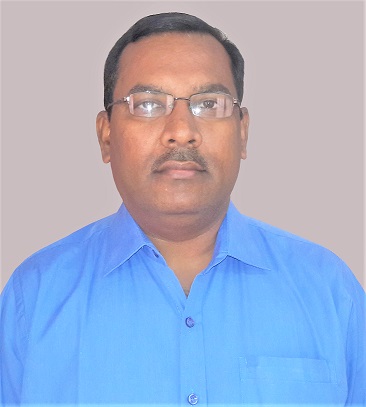
Teaching: 27 Years
Industry : 2 Years
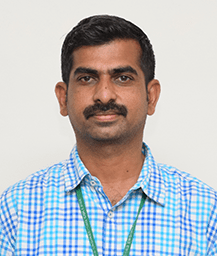
Teaching: 20 Years
Industry : 4 Years
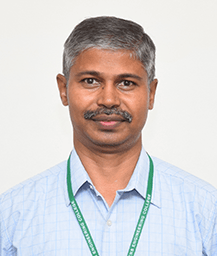
Teaching: 27 Years
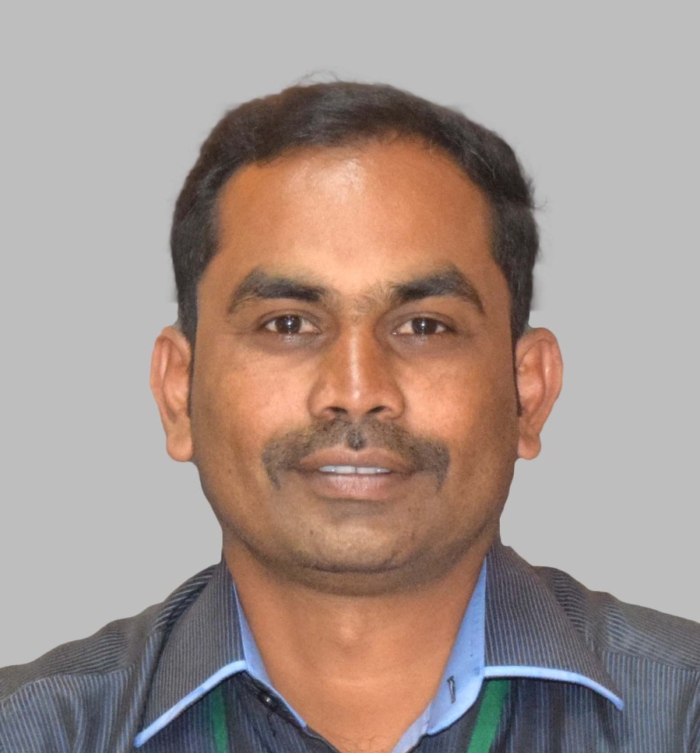
Teaching: 16 Years
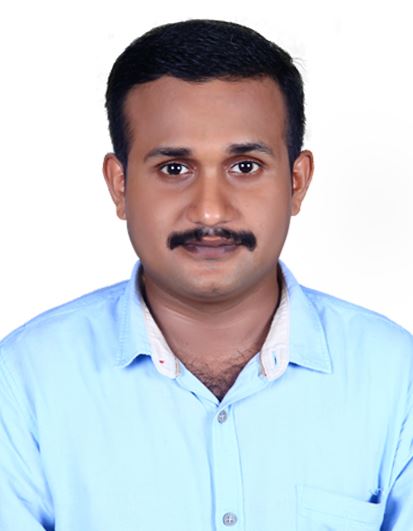
Teaching: 13 Years
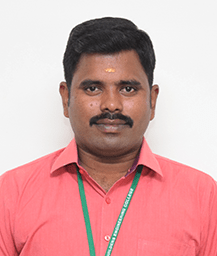
Teaching: 13 Years
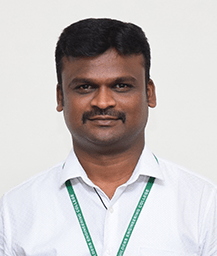
Teaching: 10.9 Years
Industry : 2 Years
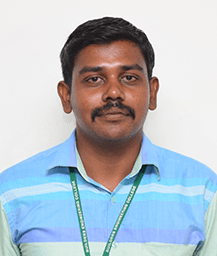
Teaching: 10.9 Years
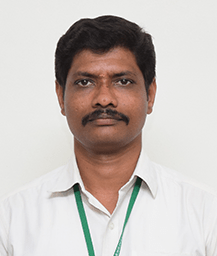
Teaching: 10.9 Years
Industry: 1 Years
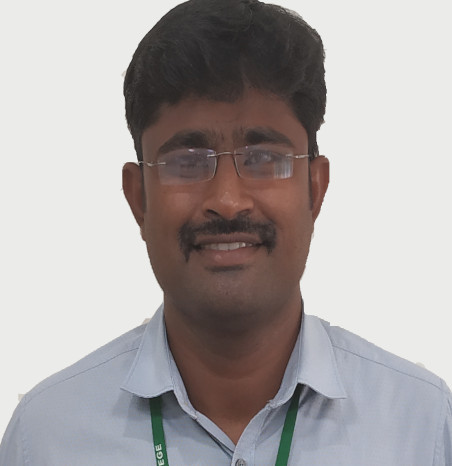
Teaching: 10.9 Years
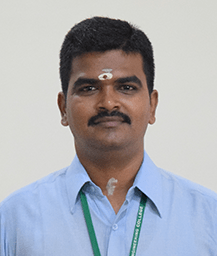
Teaching: 10.6 Years

Teaching: 7 Years
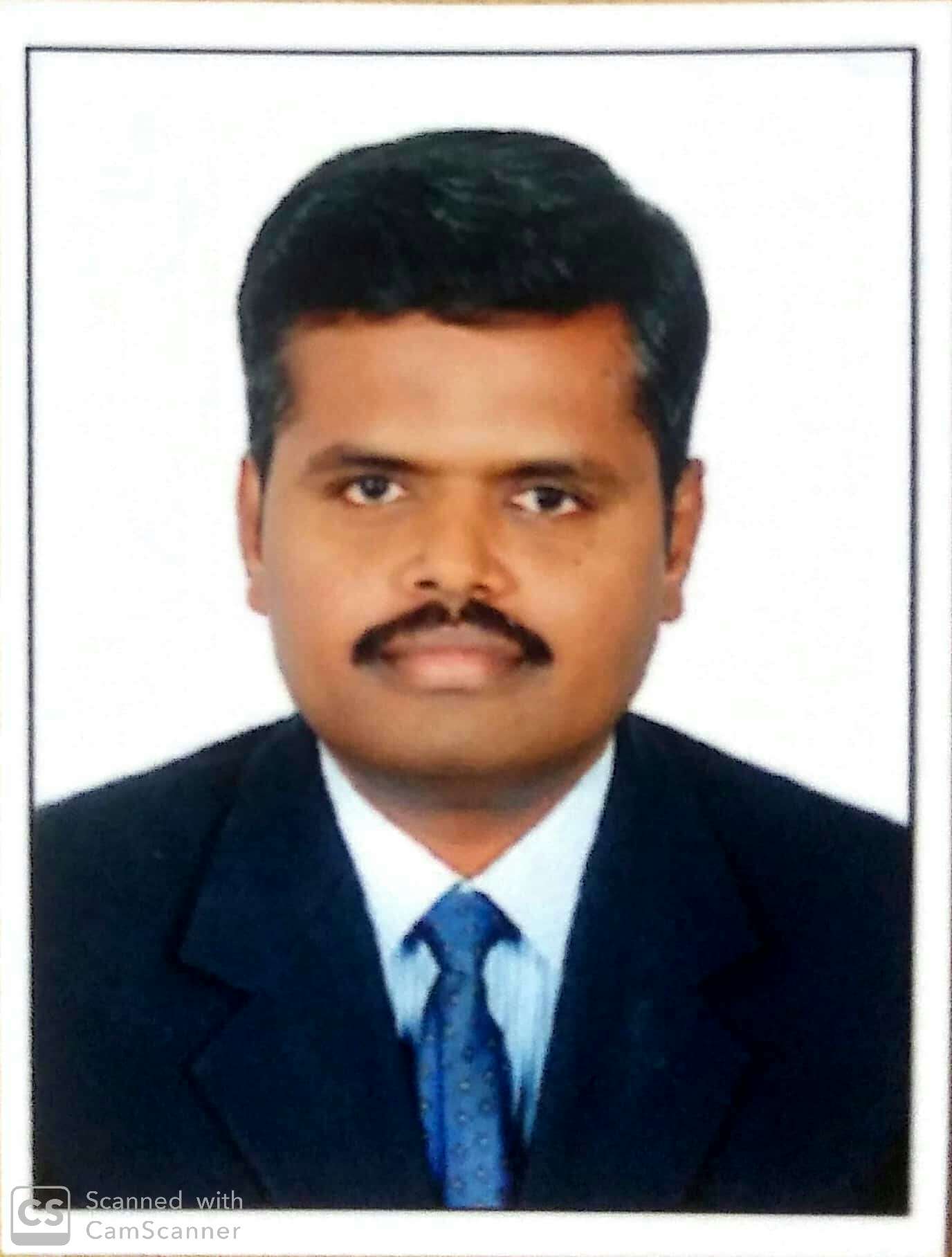
Teaching: 12 Years
Industry : 4 Years
-
- The Department has 12 well equipped and highly furnished laboratories that surpass University norms.
- The CAM lab consists of industry standard ACE Slant Bed CNC Lathe, JOBBER JUNIOR CNC model machine and ACE CNC Drill Tap Machining Center – SPARK CNC model machine where the students are given complete exposure to various milling and CNC machining operation and are trained to execute job orders.
- The thermal engineering laboratory consists of all types of IC engines, petrol and diesel test rigs, cut section of real engine, boiler, etc.
- The CAD laboratory consists of software like Auto CAD 2012, ANSYS 13.0, LAB view 2012, Edge Cam 2012 Release 1, Solid Works, etc.,
- The Harita research centre consists of high end software like CATIA V6 – CATIA PLM, CATIA V6 – CATIA Design Master and ADAMS – MD Motion Bundle.
- Product Development Centre – The product development centre is established in the year of 2022 and consists of two 3D Printers , Creality Ender-3 and Creality Ender-3 S1.
- Project Laboratory – Project Lab is intensively established to gain valuable hands-on experience where students become proficient in the area of Mechanical Engineering.
3D printing or additive manufacturing is a process of making three dimensional solid objects from a digital file. The 3D printing laboratory has been established in the year 2021 with an intension to provide students and staff with the resources needed to produce physical prototypes within their engineering design projects. The total area of the lab is 315 sq. ft.


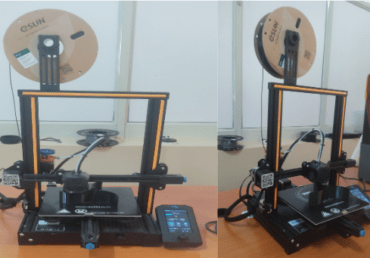
- Technology: FDM (Fused Deposition Molding)
- Assembly: DIY Kit
- Frame: Aluminum
- Mechanical arrangement: Cartesian XZ-Head
- Layer height: 100 – 400 Microns
- Max. print speed: 200 mm/s
- Print precision: +/- 100 microns
- Extruder type: Single
- Feeder system: Bowden
- Max extruder temperature: 491 °F / 255 °C
- Nozzle size: 0.4 mm
- Filament: 1.75mm – PLA, PETG, ABS, TPU
- Print bed: Magnetic, removable heated bed with viscose surface sticker
- Max hot bed temperature: 110°C
- Bed leveling: Manual
- Print area: 220 x 220 x 250mm
- Connectivity: SD card, USB
- Display: LCD screen
- Additional features: Print recovery
- Company: Creality
- Technology: FFF FDM
- Printer type: Filament deposition
- Year: 2022
- Assembly: Semi-assembled
- Materials: PLA, ABS, PVA, Wood, TPU90-95, PETG, PA
- Material system: Open material system
- Print size metric: 220 x 220 x 270 mm
- Print size imperial: 8.6 x 8.6 x 10.6 inches
- Dimensions metric: 490 x 455 x 625 mm
- Dimensions imperial: 19.3 x 17.9 x 24.6 inches
- Weight metric: 8.6 kg
- Weight imperial: 18.9 pounds
- Diameter: 1.75 mm
- Layer thickness: 100 – 400
- Microns Closed print chamber: No, an open structure
- Feeder system: Full-metal dual-gear direct extruder
- Extruder: Single
- Max. extruder temp.: 572 °F / 300
- Print bed details: Heated bed, PEI surface
- Bed leveling: Fully automatic
- Display: 4.3" LCD display
- Connectivity: Type-C USB/ SD card
- Camera: No
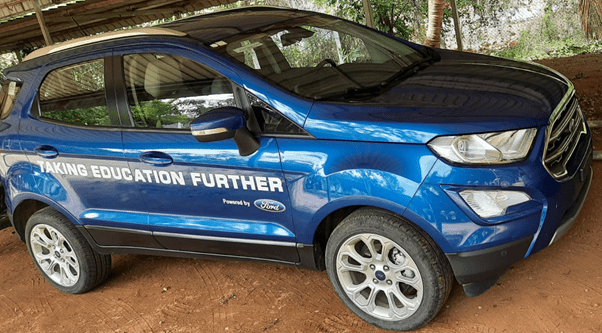
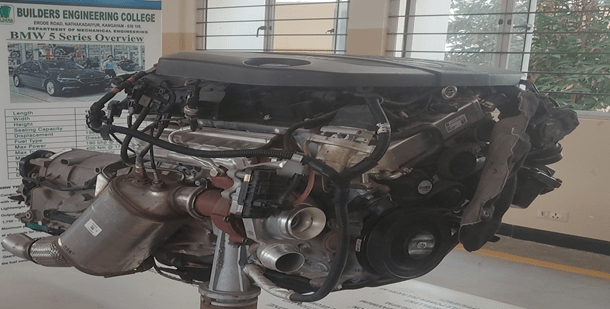
Ford India Private Limited has donated a car for educational purpose with the following specification.
Physical VIN | Vehicle Specification | Vehicle Colour |
MAJBXXMRKBHR71354 | 1.5L Dragon, 6 SPDAT, Titanium | BLUE LIGHTNING |
BMW to provide 365 Engine and transmission units to Institutes for training purpose.
Length | 4899 |
Width | 2094 |
Height | 1464 |
Displacement | 1995cc |
Fuel Type | Diesel |
Max Power | 190bhp @ 4000 rpm |
Max torque | 400 Nm @ 1750 rpm |
Mileage | 18.12 kmpl |
Transmission Type | Automatic |
No of Gears | 8 Gears |
Drive Train | RWD |
BMW Twin Power Turbo In Line 4- Cylinder 2.0 Litre Diesel Engine:
- Combination of common rail direct injection (CRDI) and a turbocharger with variable turbine geometry
- Lightweight aluminium construction
- Output of 140 KW /190 HP and a maximum torque of 400NM at 1750-2500 rpm
- Maximum performance, excellent responsiveness and agile power delivery at all speed for high efficiency
BMW EIGHT SPEED STEPTRONIC AUTOMATIC TRANSMISSION
- Highly smooth gear shifts for optimal power development
- Gears reduce the number of revolution at high speed ,thereby reducing the fuel consumption and engine noise , while increasing sportiness

